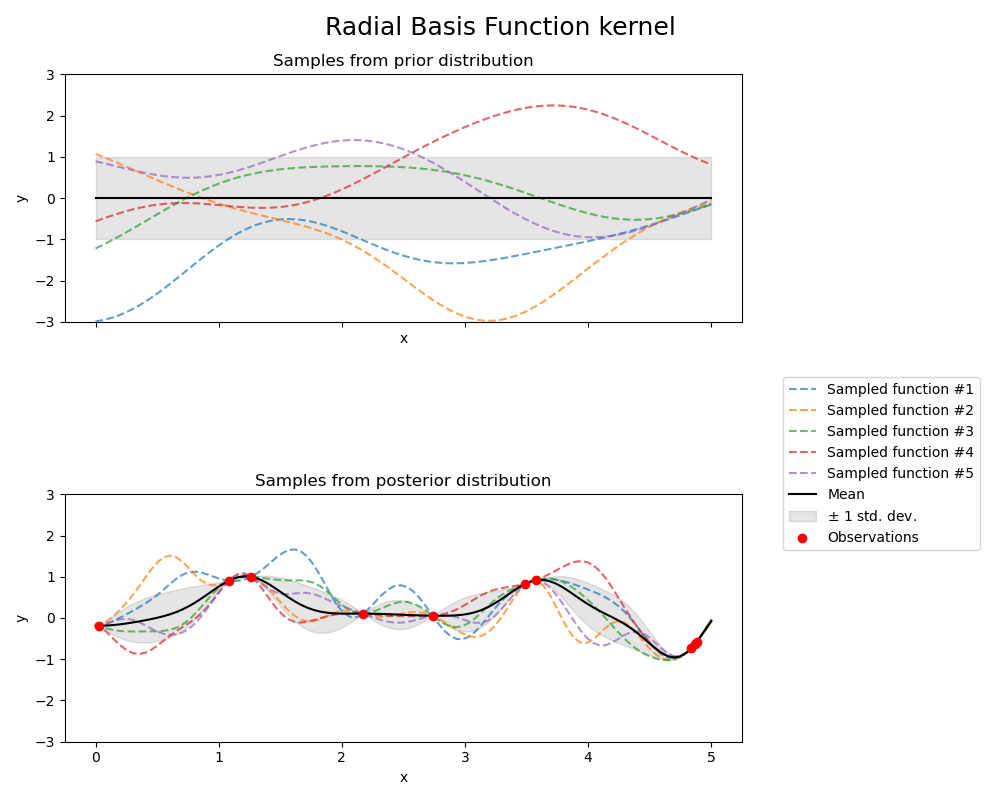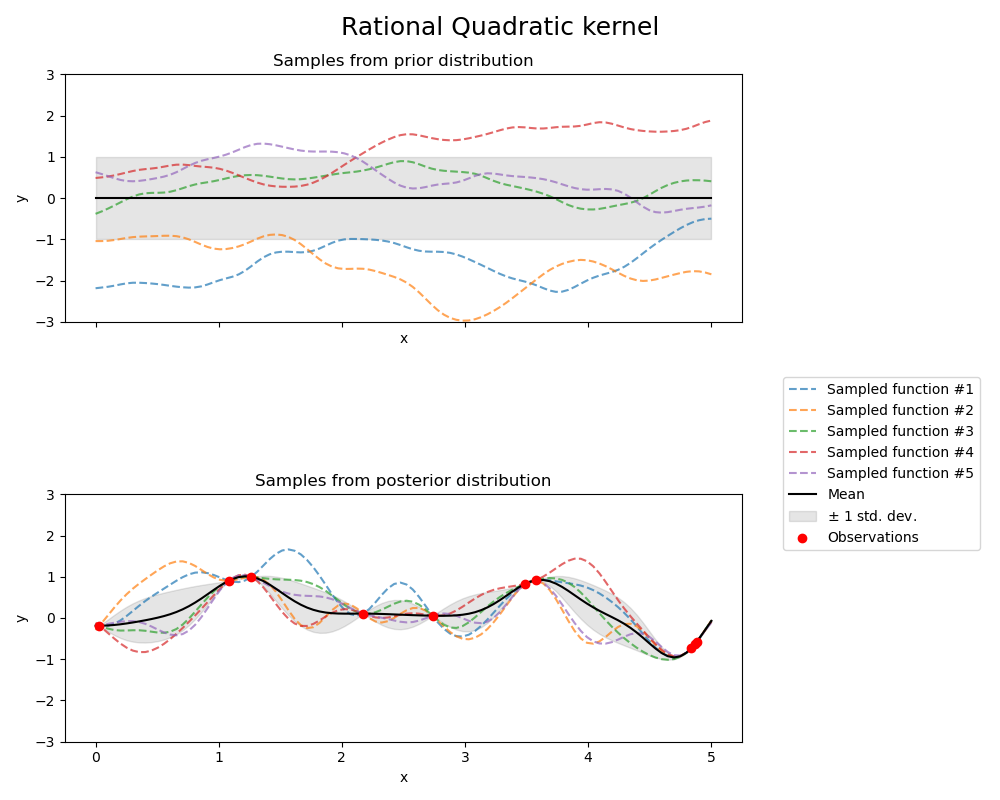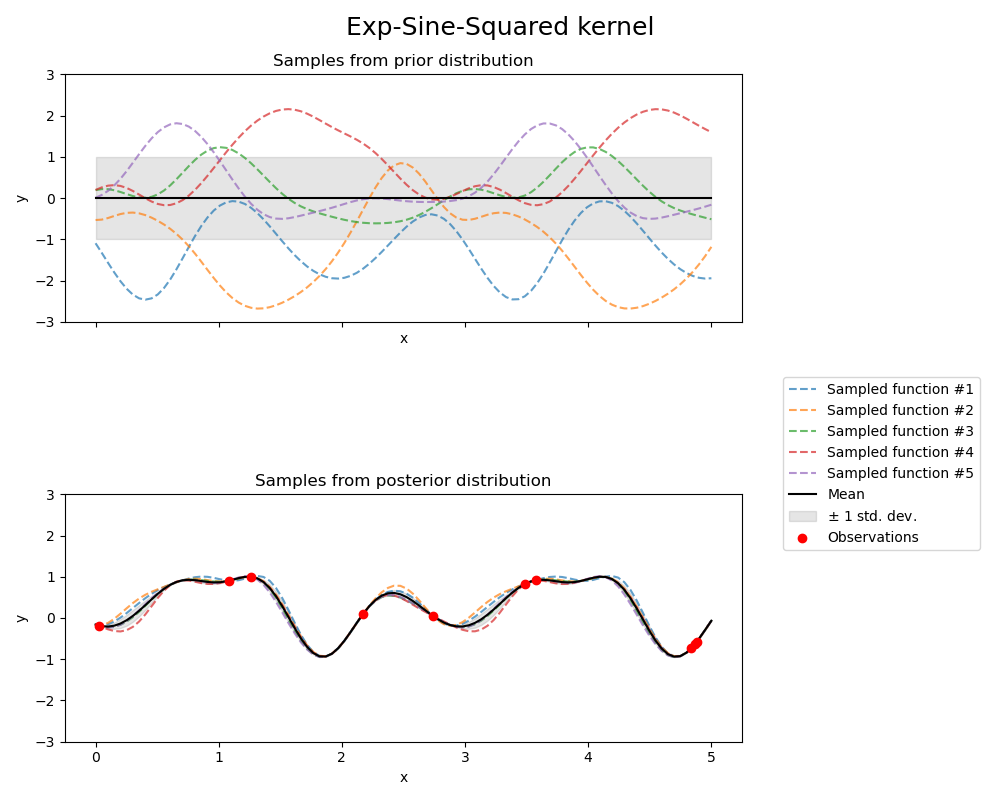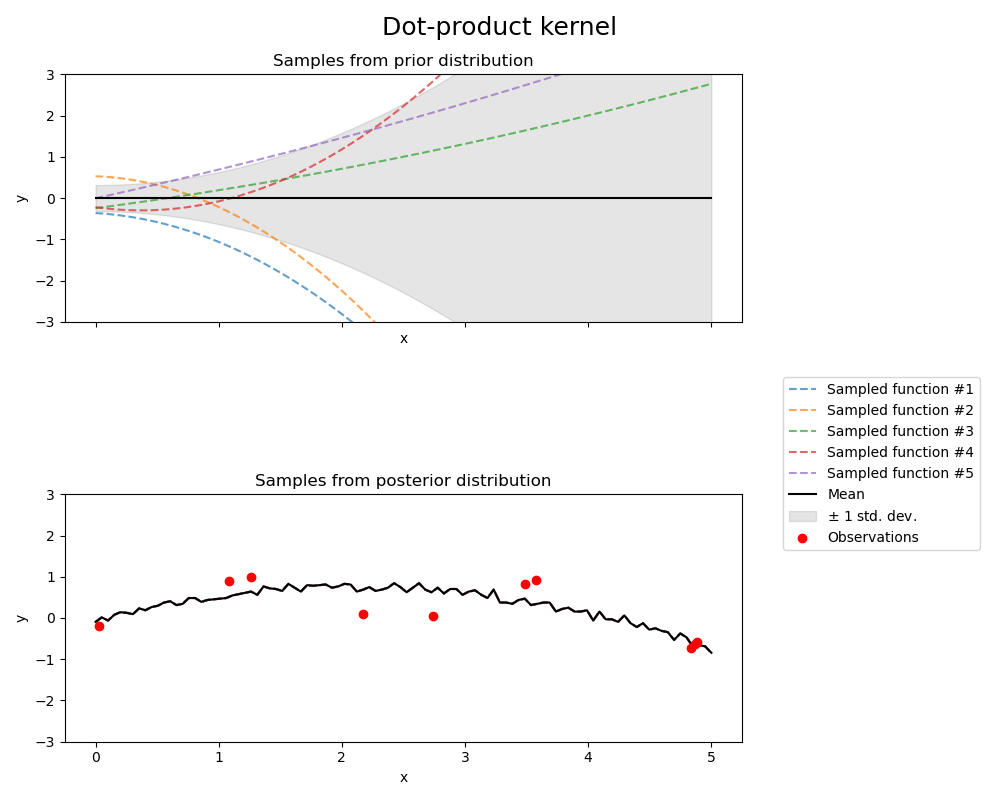W3cubDocs
/scikit-learnIllustration of prior and posterior Gaussian process for different kernels
This example illustrates the prior and posterior of a GPR with different kernels. Mean, standard deviation, and 10 samples are shown for both prior and posterior.
print(__doc__) # Authors: Jan Hendrik Metzen <[email protected]> # # License: BSD 3 clause import numpy as np from matplotlib import pyplot as plt from sklearn.gaussian_process import GaussianProcessRegressor from sklearn.gaussian_process.kernels import (RBF, Matern, RationalQuadratic, ExpSineSquared, DotProduct, ConstantKernel) kernels = [1.0 * RBF(length_scale=1.0, length_scale_bounds=(1e-1, 10.0)), 1.0 * RationalQuadratic(length_scale=1.0, alpha=0.1), 1.0 * ExpSineSquared(length_scale=1.0, periodicity=3.0, length_scale_bounds=(0.1, 10.0), periodicity_bounds=(1.0, 10.0)), ConstantKernel(0.1, (0.01, 10.0)) * (DotProduct(sigma_0=1.0, sigma_0_bounds=(0.0, 10.0)) ** 2), 1.0 * Matern(length_scale=1.0, length_scale_bounds=(1e-1, 10.0), nu=1.5)] for fig_index, kernel in enumerate(kernels): # Specify Gaussian Process gp = GaussianProcessRegressor(kernel=kernel) # Plot prior plt.figure(fig_index, figsize=(8, 8)) plt.subplot(2, 1, 1) X_ = np.linspace(0, 5, 100) y_mean, y_std = gp.predict(X_[:, np.newaxis], return_std=True) plt.plot(X_, y_mean, 'k', lw=3, zorder=9) plt.fill_between(X_, y_mean - y_std, y_mean + y_std, alpha=0.5, color='k') y_samples = gp.sample_y(X_[:, np.newaxis], 10) plt.plot(X_, y_samples, lw=1) plt.xlim(0, 5) plt.ylim(-3, 3) plt.title("Prior (kernel: %s)" % kernel, fontsize=12) # Generate data and fit GP rng = np.random.RandomState(4) X = rng.uniform(0, 5, 10)[:, np.newaxis] y = np.sin((X[:, 0] - 2.5) ** 2) gp.fit(X, y) # Plot posterior plt.subplot(2, 1, 2) X_ = np.linspace(0, 5, 100) y_mean, y_std = gp.predict(X_[:, np.newaxis], return_std=True) plt.plot(X_, y_mean, 'k', lw=3, zorder=9) plt.fill_between(X_, y_mean - y_std, y_mean + y_std, alpha=0.5, color='k') y_samples = gp.sample_y(X_[:, np.newaxis], 10) plt.plot(X_, y_samples, lw=1) plt.scatter(X[:, 0], y, c='r', s=50, zorder=10) plt.xlim(0, 5) plt.ylim(-3, 3) plt.title("Posterior (kernel: %s)\n Log-Likelihood: %.3f" % (gp.kernel_, gp.log_marginal_likelihood(gp.kernel_.theta)), fontsize=12) plt.tight_layout() plt.show()
Total running time of the script: (0 minutes 2.133 seconds)
Download Python source code:
plot_gpr_prior_posterior.py
Download IPython notebook:
plot_gpr_prior_posterior.ipynb
© 2007–2016 The scikit-learn developers
Licensed under the 3-clause BSD License.
http://scikit-learn.org/stable/auto_examples/gaussian_process/plot_gpr_prior_posterior.html




